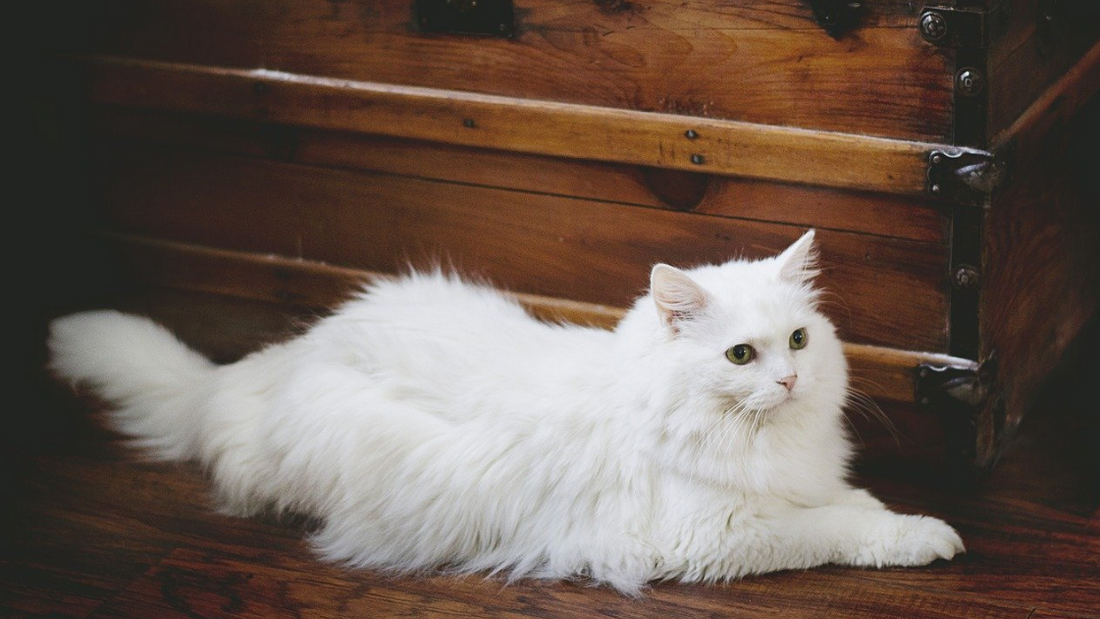
Feline Fur: How To Properly Manage Your Cat's Hair
Share
Felines are known for their majestic shiny coat. There is no denying that a cat's hair is soft and smooth to touch, but did you know that it has other important functions, as well?
Cats have around 13,000 hairs per square inch and all these strands work together to give sensory data, protect from extreme temperature, and aid in nutrient production.
A cat's coat requires constant upkeep to maintain its shine and reduce shedding. While felines are mostly excellent self-groomers, they still need occasional help on keeping their coats beautiful. Proper grooming is all that makes a difference between a healthy coat and a dull one.
Proper Grooming Habits
Several factors determine the frequency of your cat's grooming. This includes age, lifestyle, and health, as well as texture and type of fur. Tips for grooming long-haired cats with silkier coats involve more maintenance to prevent tangling and matting.
Brushing your cat's hair once a day to once a week, depending on its breed, is an ideal and direct approach to coat care. This also helps distribute natural oils evenly on the coat and even improve muscle tone, not to mention, cats love being brushed and combed. Making brushing a ritual for you and your cat also improves your bond together.
When choosing a brush or comb style, it is also important to consider your cat's coat type. Cats with short hair or sparse undercoats will benefit from stiff bristle brushes that remove loose hair. On the other hand, long-toothed metal comb or brush should be used for long-haired cats.
Look Out for Hairball
Cats develop the occasional hairball which is seen more often in long-haired cats. Excessive hair loss occurs during shedding season which could lead to hairball production. However, when this is not the case, a frequent hairball is a cause for alarm.
An increased hairball occurrence could be indicative of too much hair ingested due to hair loss or a skin condition and a moisture-deficient diet. Excessive hair loss may be caused by inflamed areas, allergies, ringworm or fleas.
Visit the veterinarian immediately if you observe these symptoms.
Bath When Necessary
Some owners choose to bathe their cats. However, this is not recommended by most veterinarians as bathing will only dry out your cat's skin and stress it out. Bathe your cat only if absolutely necessary and all other options have been exhausted or if prescribed by a veterinarian.
Just like bathing, bringing your cat for professional grooming only brings about needless anxiety and trauma in your pet. Taking an indoor cat to car rides and unfamiliar places does more harm than good.
If you choose to get your cat professionally groomed, consider hiring a mobile or in-home groomer to minimize your cat's discomfort.
Improve Nutrition
If your cat's coat remains dull and dry despite regular grooming, your feline may lack proper nutrition. Its skin and coat reflect the cat's internal body nutrition and processes.
Felines have a high protein requirement, along with complex carbohydrates and healthy fats to have a balanced diet. Giving them insufficient fat or low-quality food will cause an unhealthy coat.
The first step to enhancing nutrition is to upgrade your cat's food into premium brands and high-quality, grain-free products. Additionally, you can supplement with fatty acids such as those found in salmon, tuna or other fish oils.
Manage Weight
Overweight or obese cats tend to self-groom less effectively due to their reduced flexibility, leading to a dull coat. The extra weight also increases your cat's risk for chronic health problems like diabetes, high blood pressure, heart disease, osteoarthritis, and cancer.
It is important that you do not make the decisions alone regarding your cat's diet. Consult your veterinarian who will create a low-calorie diet for your cat. The veterinarian will calculate the right number of calories for a proper and healthy weight loss.
Consult Your Veterinarian
Be wary of how your cat's hair looks. A lackluster coat does not just look bad on the outside, it could also mean that your cat is unhealthy on the inside and needs a check-up. Few things to look out for include greasiness, dandruff, and excessive shedding.
Before treating your cat superficially with brushing or bathing, think about whether the dull coat could indicate something else. Never administer something without the consulting your veterinarian first. Giving unapproved medication or home remedies could possibly worsen and complicate your cat's condition.
Coat care and maintenance are just one of the many responsibilities you have as a pet parent. Keep your cat's coat clean and healthy. Not only will it feel soft to touch and great to look at but your cat will also thank you for it.
